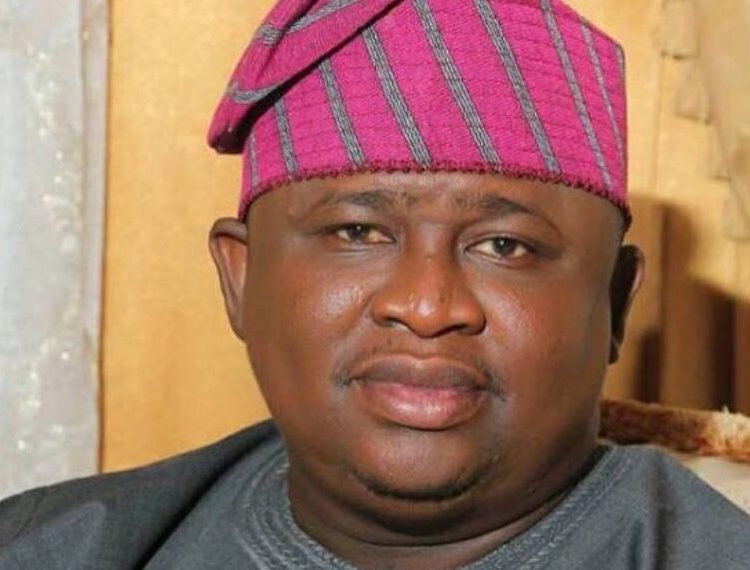In the presence of journalists, and an anxious public, the Senate passed the electoral bill on July 15. The next day, again amid chaos, the House of Representatives passed it too.
Allegations of backdoor moves to alter the consensus provisions of the bill were rife prior to the passage, all of which the National Assembly denied.
Long sought by the Independent National Electoral Commission (INEC) and craved by many Nigerians, the provision in section 52(3) for the electronic transmission of election results generated the most controversy.
Proponents wanted the National Assembly to legally empower INEC with the responsibility to transmit election results electronically.
However, legislators, especially of the All Progressives Congress, many of whom voted along party lines, voted against it.
At the House of Representatives, the passage of the bill was brokered by a remarkable legislative maneuver which the opposition described as undemocratic.
INEC’s power to transmit election results electronically is now subject to the proposition of the Nigerian Communications Commission (NCC) and the approval of the National Assembly.
5G Network: NCC
By doing so, the National Assembly has stripped INEC of the independence it was due, analysts believe.
Assisted by the submission by the NCC, the National Assembly believes that INEC does not have the capacity to do it on its own, a development that has startled officials at the electoral commission, this newspaper learnt.
Findings by PREMIUM TIMES, however, show that the NCC, the regulatory agency for the telecoms sector, misled the lawmakers and indeed Nigerians on the electronic transmission of results; a view also shared by INEC.
INEC says NCC lied
When the debate at the House of Representatives on electronic transmission of results became heated, the Speaker, Femi Gbajabiamila, ruled that the NCC and INEC would be invited to guide the House on whether or not electronic transmission of results was practicable across the country.
When the NCC representative, Adeleke Adewolu, appeared before the lawmakers about a fortnight ago, he said less than half of the polling units in Nigeria have the needed network coverage for the transmission of election results.
TEXEM
The NCC commissioner, technical services, Ubale Maska, corroborated this by saying that by the survey the NCC conducted in 2018, about 50.3 per cent of the 109,000 polling units out of 119,000 polling units have 3G network facilities. Others, he noted, are with 2G network, while some are without coverage as of 2018.
To the consternation of many Nigerians including opposition lawmakers, INEC was not allowed to brief lawmakers on the matter, with majority of the lawmakers, perhaps influenced by the position of the NCC, voting against electronic transmission of results.
INEC, however, publicly faulted the claim that electronic transmission of results was not realisable due to poor network coverage across the country.
In what he described as a “blatant lie” during African Independent Television (AIT) breakfast programme Kakaaki, INEC’s director of publicity and voter education, Nick Dazang, faulted the claims by the NCC officials.
“In January 2018, INEC approached NCC that it wants a technological-driven Commission and both have been working closely to deliver free, fair and credible elections in our country for the benefit of our citizens. They are also aware that two network providers- MTN and Airtel have assisted JAMB conduct their examinations across Nigeria. So INEC is still wondering why NCC has suddenly made a U-turn that there is not enough network coverage in every part of Nigeria,” he said.
“I am convinced that if INEC was given the chance to appear before the National Assembly alongside NCC, the Commission would have told the Distinguished Senators and Honourable Members that all the network providers in Nigeria have assured INEC that network coverage is 100 per cent across the country,” Mr Dazang insisted.
“There is no website that is not prone to attack by hackers even in the most advanced nations but Nigerians should be rest assured that INEC has what it takes to fight off hackers and the Commission is well prepared to safeguard its websites against hackers.”
Documents back INEC, show NCC lied
Documents have now emerged affirming the capacity INEC had built prior to the 2019 general elections and which was vetted by both the NCC and officials of the four telecommunication companies. The documents also counter the submissions made by NCC.
The two documents seen by this newspaper detailed the minutes of the meetings INEC held in 2018 with the NCC and the telecoms.
The overall resolution was that electronic result transmission was “practicable” in spite of the improvements that were suggested.
NCC’s meeting with INEC in 2018
Pressed by a desire to improve Nigeria’s electoral system, the Independent National Electoral Commission chairman, Mahmood Yakubu, on January 30, 2018, visited his counterpart at the Nigerian Communications Commission, Umar Danbatta.
Top of the agenda of the meeting between delegates of the two government agencies was to discuss how they could collaborate to enhance the electoral process in the country.
The meeting birthed a joint technical committee, delegates of which were drawn from both teams and whose mandate was to “map out strategies that will reduce human interventions in the transmission of election results” while also ensuring quality electoral service delivery.
Headed by the NCC’s executive commissioner for technical services, Ubale Maska, it was co-chaired by INEC’s national commissioner, Muhammed Lecky.
From March 2018, the joint technical committee began to meet and it opted for the “traditional data communication connection service from MNOs using APN as the most appropriate solution for the electronic transmission of election results.”
This method, the final report of the committee submitted August 9, 2018, and reviewed by this medium showed, would help minimise cost and ensure “security and data confidentiality” which are “not guaranteed by the other solutions that were explored.”
This would require all operators to configure “one Access Point Name (APN) and Virtual Private Network (VPN) towards the INEC platform to enhance security,” one of the documents read.
While NCC was to present the network coverage map of the country detailing 2G, 3G and 4G coverage, INEC was tasked to provide the GPS coordinates of all its PUs nationwide.
The mappings will be mapped to the network coverage network (2G, 3G or 4G) and strength prevalent in each polling unit documents show.
“The coordinates of the INEC polling UNITS (PUs) and Ward Collation Centres (WCC) be forwarded to the Operators to enable superimposition of the same into their respective coverage maps,” the documents further read.
“The Subscriber Identity Module (SIM) cards to be used by INEC’s Card Readers should be customized to carry unique security features and functionalities.”
It was further resolved that the NCC should liaise with the law enforcement agencies to ensure the safety of the telecom infrastructure, especially during the election.
At the time, INEC had 119,973 polling units, and it was able to provide the coordinates for 118,302, and the commission was expected “to supply the balance of 1,671 PUs in due course.”
“Similarly, NCC carried out a coverage analysis of the PUs on the national mobile network coverage map based on the standard signal strength threshold of -95dBm.”
Telecoms consensus
In March 2018, INEC and NCC met with the quartet telecommunication companies of MTN, Airtel, Globacom and 9 Mobile to discuss “technology requirements for the electronic transmission of results (ETR) and its implications.” The four mobile operators together account for virtually all of Nigeria’s mobile telephone networks.
After the meeting, the consensus reached by all the operators was that “the requirements for the ETR proposed by INEC is practicable.”
They resolved at the meeting that “the solution that the INEC wants to deploy is possible, bearing in mind the cost implication related to network coverage especially in the remote areas where INEC have PUs and WCCs.”
Again, at another meeting on April 5, 2018, according to the minutes seen by PREMIUM TIMES, mobile operators in the country “all committed to the workability of the solution, having done similar service for JAMB and the FIRS.”
On one hand, MTN and Airtel both confirmed that they have jointly implemented similar solutions for the Joint Admissions and Matriculation Board (JAMB). On the other hand, 9 Mobile said it had done so for FIRS.
They nonetheless said there was a need for a “high level of confidentiality” to shield the system from infrastructure and personnel attacks “by unscrupulous politicians,” proper test running and deeper understanding of the systems.
This was to help “completely eliminate human interference in the result collation process in the country.”
This optimism came about a year to the 2019 general elections. However, largely because there was no legal backing for it, INEC did not implement in the 2019 elections.
With the next general elections about two years away, the NCC sang a different tune, thus influencing lawmakers to reject electronic transmission of results which many Nigerians believe would bring more transparency to the electoral process.
PREMIUMTIMES





2 Comments